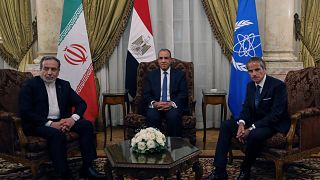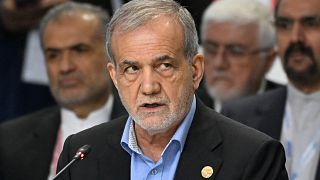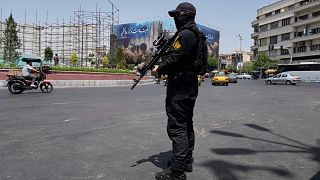Iran
Tehran residents said they were deeply worried about the return of United Nations sanctions and a nosediving local currency. The sanctions over Iran's nuclear programme were reimposed on Saturday at midnight.
The sanctions, suspended under an agreement with world powers in 2015, were reimposed early on Sunday morning over Iran's continued nuclear programme and failed talks between the country and Western powers.
Iran's regime reacted promptly and called the sanctions "unjustifiable".
Residents on Saturday said they feared sanctions would deteriorate the already ailing economy, which has been hard hit by US sanctions and a "maximum pressure" campaign.
Britain, Germany and France activated the so-called "snapback" mechanism in August, after talks with Iran over its nuclear and missile programs failed to result in an agreement.
The activation of the "snapback" mechanism is followed by a 30-day period in which diplomatic measures can be taken to prolong the non-imposition of sanctions. As no diplomatic agreement was reached, the sanctions came once again into effect overnight from Saturday to Sunday.
UN inspectors have not been allowed to visit Iran's nuclear sites attacked by Israel and the United States in June, and the fate of Iran's enriched uranium stockpile remains unclear.
Iranian officials have been trying to downplay the possible impact of the development, saying the US sanctions already in place are much tougher than the sanctions being restored.











01:20
United Nations rights office alarmed by killings in Tanzania protests
02:18
UN calls for immediate ceasefire in Sudan's al-Fashir after mass killings
01:19
UN calls for support for Caribbean countries hit by Hurricane Melissa
01:31
UN urges safe passage for civilians in war-torn Sudan city of El- Fasher
01:51
Nelson Mandela lecture 2025: Francesca Albanese on the occupation of Gaza
01:12
Polisario Front says Morocco's autonomy plan should go to referendum